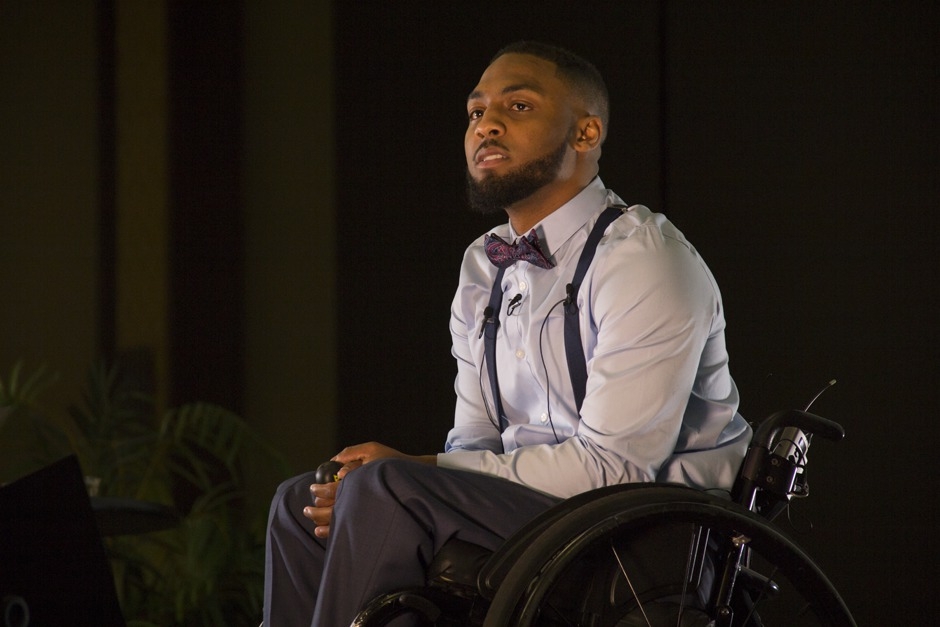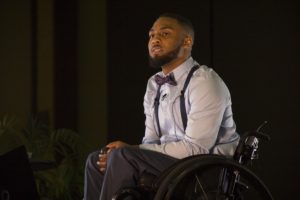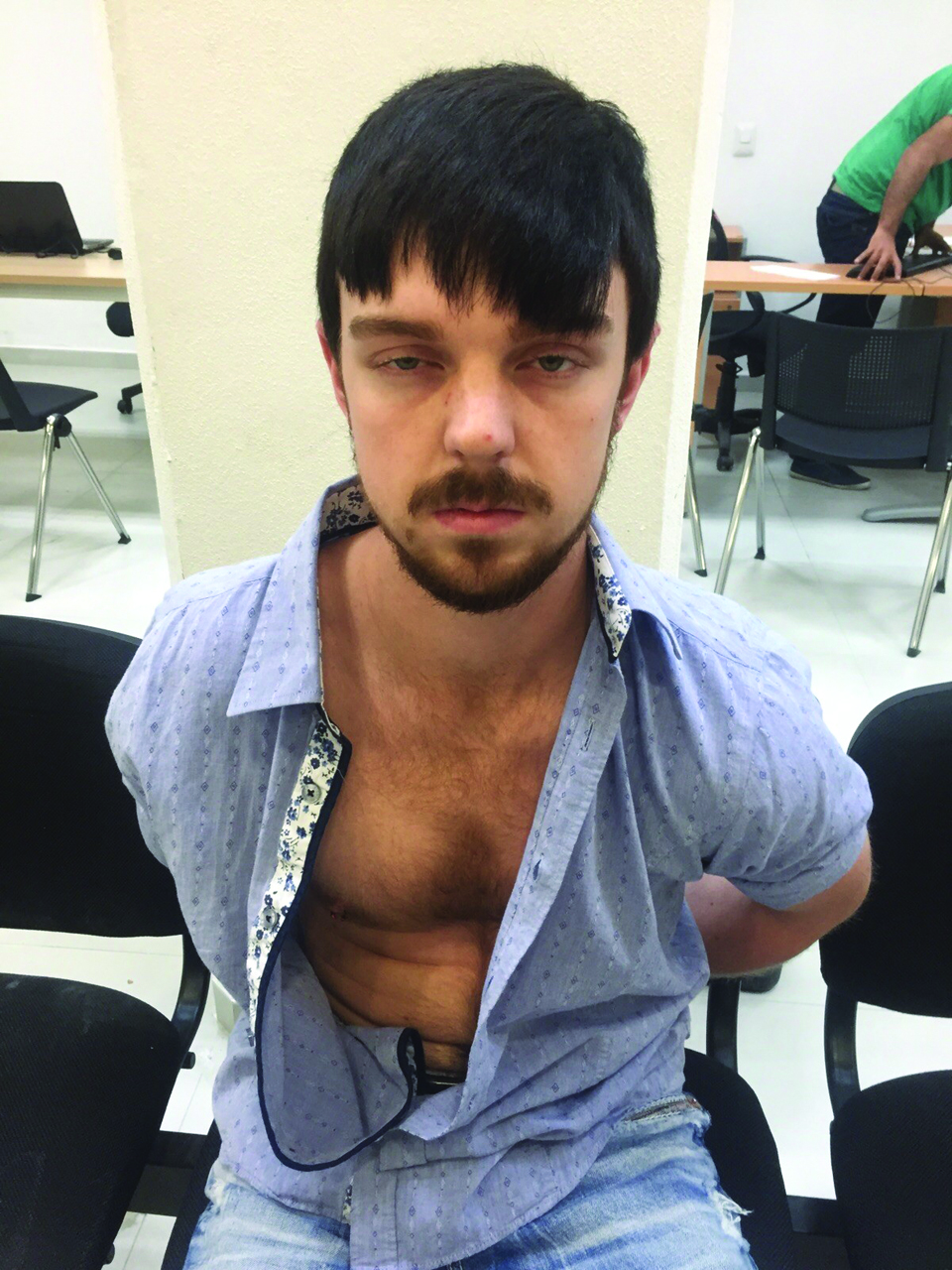

Leon Ford, a Pittsburgh resident who was shot and paralyzed by Pittsburgh Police in 2012, gave a speech at the Power Center Ballroom on Feb. 23 about optimism.
Raymond Arke | Asst. News Editor
A drive to his grandmother’s house ended in five bullets on that November 2012 night.
On Feb. 23, Duquesne hosted Leon Ford, a Pittsburgh resident, who gave a speech encouraging optimism and positivity, though he remains paralyzed from the waist down after his encounter with the police.
On Nov. 11, 2012 Ford was pulled over by Pittsburgh Police for rolling through a stop sign. What happened next is still disputed, but police mistook Ford for a wanted criminal with a similar name and attempted to apprehend him. Ford refused to leave the car.
An officer then struggled to remove Ford from the vehicle and another hopped in the passenger seat. Police allege Ford started to drive away. Ford testified the car was put in gear during the scuffle. As the car drove away, the officer in the car with Ford shot him, according to The Pittsburgh City Paper.
Ford, who is now in a wheelchair, began the presentation with a pledge he had the audience stand up and repeat.
“We must give up to go up. We must give up to grow up. We must give up on the way up. And give up even more to stay up. I can not teach what I do not know. I can not lead where I will not go. I am because we are. We are because I am. I am my brother’s keeper. I am my sister’s keeper. I am destined for greatness because I attract what I am,” he said.
He remains upbeat and with a smile even though he will never be able to walk again. People often ask him what it feels like to be shot.
“It hurts. Not only physically … it hurts because I was shot by people I thought were in place to protect me,” he said.
The incident provided Ford time to do soul searching. Before he was shot, he describes himself as “the life of the party,” and he wondered how it all went wrong.
“I didn’t understand why I was shot five times. I questioned God. I was a good person,” Ford said.
The whole experience taught him valuable lessons that he wants to share with others.
“I learned patience. I learned the significance of not speaking from a place of anger. [I learned] why it’s important to lead from a place of love,” Ford said.
For the first couple weeks recovering in the hospital, Ford was unable to see his family, he recounted. When they finally could, he found out that he was still being held under arrest by the police for aggravated assault, among other charges. His mother was not allowed by the police in the room to kiss or touch him.
“[They] were treating me like I was some type of animal,” Ford said.
This does not mean that Ford hates police — in fact, he advocates for dialogue and understanding between the community and officers.
“I encourage young people to be police officers. This is what healing is all about. Sometimes we have to put personal feelings aside for the betterment of the community,” he said.
Of the police officers that paralyzed him, he said, “I understand they are a bad product of a broken system. I have compassion for them.”
Ford wants to set an example for other young African-American men to follow.
“I’m going to be positive. I’m going to be a symbol of hope,” he said.
At the end of the program, Ford took a variety of questions from the audience, including from a group of African-American boys who said they have also had experiences with the police.
One member of the audience asked if Ford has ever heard anything from the officers who shot him, he said he has heard nothing.
“[They] never apologized. I never received an apology from anyone in the city of Pittsburgh. It’s not something I’m gonna hold my breath for,” Ford answered.
Ford’s father was in attendance and gave a moving testament to the strength of his son. He recounted how as a young boy, Ford would say his dad was his hero.
Now, his dad said of Ford, “You [are] my hero now.”
Jeff Mallory, the director of Duquesne’s Office of Diversity and Inclusion, helped set up the event. He is a close friend of Ford’s and said Ford often stops by the office.
“Leon’s been a really strong supporter of our students. He’s an enrolled student here at Duquesne, and he’s always looking to give back,” Mallory said.
Mallory admires Ford’s ability to be such a strong, positive presence after all he’s been through.
“There’s qualities in him we should exhibit. [Positivity] radiates from him,” he said.
William Generett, president and CEO of Urban Innovation21, “an economic development organization,” who cohosted the event.
Generett said Duquesne was one of the founding members of the organization and participates with the University of Pittsburgh and other local universities in internship programs for their students.
Leon is a great example for people to follow, Generett said.
“Leon is the type of leader our region must support if our region is going to become a better place for more people,” he said.




